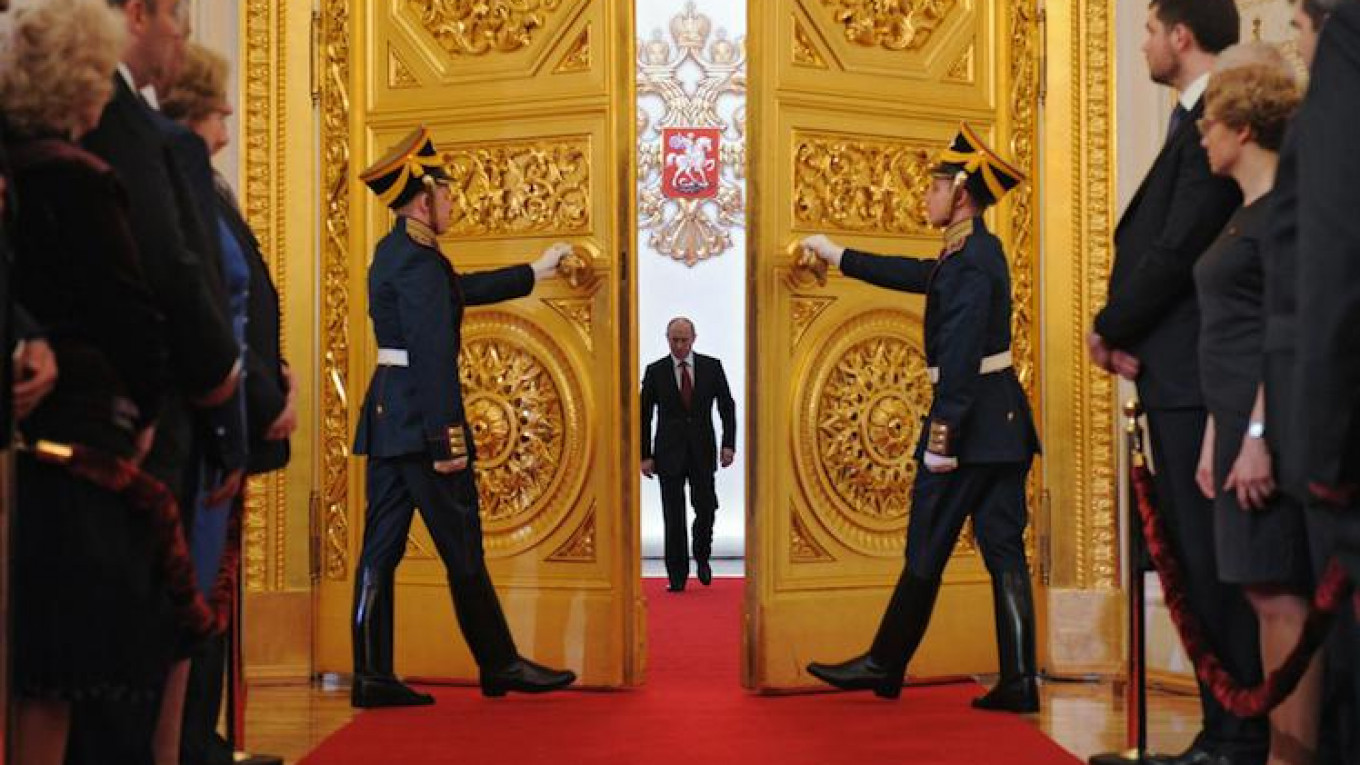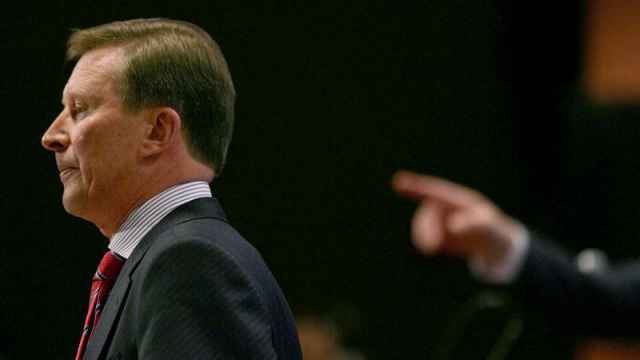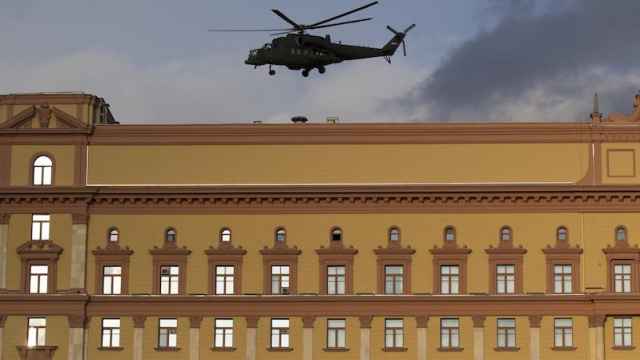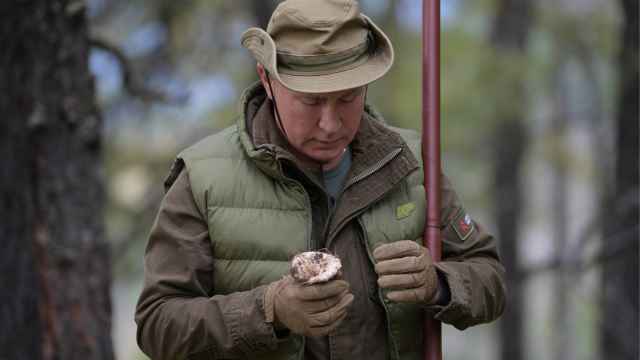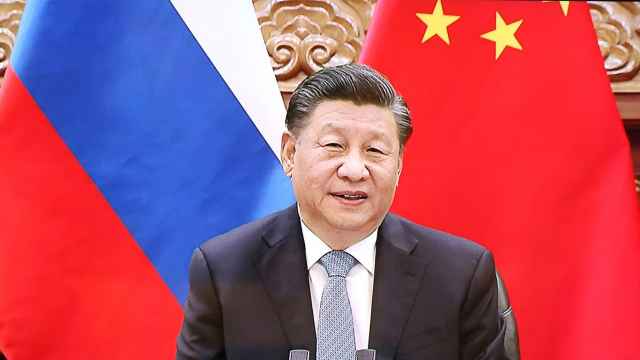In
recent months, Putin has fired several of his old associates, including his former chief of staff,
Sergei Ivanov. In their place, he has hired new, loyal strongmen from the
security services —also called the siloviki — to fill important administrative positions. Putin’s regime is
changing from within.
The first hint of change came at the beginning of Putin’s third term in 2012, when then Deputy Prime Minister Igor Sechin began to grow apart from the president. Once Putin’s “right hand man,” by 2015 Sechin was admonished by the president for not putting state interests above corporate ones. Shortly after, Vladimir Yakunin, one of Putin’s close associates and the longtime president of Russian Railways, was fired.
Why are Putin’s old friends falling out of favor with the president?
For one, the annexation of Crimea has engendered a new geopolitical way of thinking in the Kremlin: as well as a new set of priorities. Sanctions and depressed oil prices have limited the resources available to Putin’s friends, making it more difficult for Putin to please them. As a result, the priorities of many members of Putin’s inner circle have diverged from those of the president.
In the 2000s, loyalty was crucial. Today, personal relationships mean very little. Although individuals used to define how the system was managed, the system now defines how individuals are managed.
Everyone is now part of the system, cogs in the United Putin machine; the divide between insiders and outsiders no longer matters.
It is difficult to place Ivanov’s demotion within this broader trend. On the one hand, Ivanov worked side-by-side with Putin for decades, and was at one point thought to be the heir to the throne. On the other hand, because he worked so closely with Putin on a daily basis, he didn’t demand resources or protection.
It is unlikely that Ivanov’s resignation was voluntary. Why would a man of his stature be willing to take such a major step down on the career ladder? Some argue that Putin was unhappy with Ivanov’s performance, while others say Ivanov asked to be relieved of his duties in 2014, following the tragic death of his son.
But Kremlinologists are wrong to look to the past. The near future provides more answers: the ousting of Ivanov clearly points to Putin’s reluctance to burden himself with his associates’ problems, as well as his need for greater dynamism and an easy-going attitude among his subordinates. Ruling Russia has become a lonely business; Putin doesn’t need his friends to help him anymore.
There has also been a recent change in the way key decisions are discussed in the Kremlin. In the 2000s, political analysts debated which clan or political player was lobbying for any given policy decision.
But the Ukraine crisis and the Kremlin’s operation in Syria have made military leaders and officials from the intelligence services Putin’s most important advisers. Gradually, Putin’s friends have been replaced by select strongmen, while the overall size of his inner circle has shrunk.
When a general from the Ministry of Defense or the Federal Security Service (FSB) briefs Putin, he doesn’t ask unnecessary questions, second-guess the president’s decisions, or expect anything in return. There is no emotional connection.
The same is true of other new administrators Putin has appointed. As Putin replaces his friends with young, rank-and-file siloviki, it is becoming clear that Putin does not want faithful advisers, he wants acolytes.
The manner in which personnel decisions are being made suggests that Putin is procrastinating. Personnel problems pile up and remain unresolved for months. Then, when the president has time to tackle them, he makes a large number of decisions all at once. This means that dismissals and appointments don’t necessarily correspond with administrative priorities. People are being moved around in a game of musical chairs, without any strategy or thought given to their current or future responsibilities.
Sources say that Ivanov should have been gone a year ago, but Putin didn’t make the decision until he was forced to: the recent crisis in Crimea demanded greater speed and agility in his administration. Putin is making decisions with his back against the wall. Unsurprisingly, these decisions are poorly thought out.
Officials are literally scrambling from one job to another. Consider Alexey Dyumin’s recent employment history: in 2014, he left the Presidential Security Service and joined the Military Intelligence Service. In 2015, he was named Deputy Commander of the Ground Forces and then Deputy Minister of Defense. Two months later, in February of 2016, he was appointed Governor of the Tula region.
This current policy can only lead to personnel instability and unpredictability. At this point, no one can be sure that they will be allowed to serve out their term or spend a reasonable amount of time in office, even if they were just appointed.
Indeed, many of Putin’s moves are perplexing. Officials like Nikita Belykh, the former Kirov region governor, were in Putin’s good graces one month and forced out of office the next. His and other cases create the impression that the president is increasingly making his personnel decisions in reaction to circumstances rather than as part of an overall strategy.
One day, Putin receives a report praising an individual’s positive characteristics and approves his appointment to a certain government position. The next day, he gets a different report from a different source with derogatory information on that individual and approves his arrest.
In this new system, the president is increasingly outsourcing his workload. Overloaded with dirt on everyone around him, Putin has stopped trusting anyone, preferring to shift the burden of responsibility onto those who are beyond reproach: The Internal Security Directorate of the FSB. This is how the political system is gradually transforming. In this new system there is no room for the Ivanovs and the Belykhs of the world; there is only room for silent cogs.
Tatyana Stanovaya is director of the analytical department of the Center of Political Technologies in Moscow.
A full version of this Op-Ed was originally published at Carnegie Moscow Center.
A Message from The Moscow Times:
Dear readers,
We are facing unprecedented challenges. Russia's Prosecutor General's Office has designated The Moscow Times as an "undesirable" organization, criminalizing our work and putting our staff at risk of prosecution. This follows our earlier unjust labeling as a "foreign agent."
These actions are direct attempts to silence independent journalism in Russia. The authorities claim our work "discredits the decisions of the Russian leadership." We see things differently: we strive to provide accurate, unbiased reporting on Russia.
We, the journalists of The Moscow Times, refuse to be silenced. But to continue our work, we need your help.
Your support, no matter how small, makes a world of difference. If you can, please support us monthly starting from just $2. It's quick to set up, and every contribution makes a significant impact.
By supporting The Moscow Times, you're defending open, independent journalism in the face of repression. Thank you for standing with us.
Remind me later.



